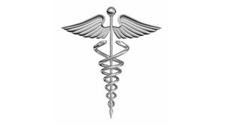Salty Taste In Mouth

The Truth Behind that Salty Taste in Your Mouth
Do you have a salty taste in your mouth? Does it drive you crazy because you not only taste salt every time you eat, but do not know where in the world it came from? If so, then this article will be a great service to you. A salty taste in your mouth is unpleasant and annoying, and can make anyone want to seek out a solution as soon as possible. While no one is always completely sure about what causes the salty taste, there are several probable explanations that may help you resolve your condition in a satisfactory manner.
|
|
First, let us examine the symptoms of a salty taste in your mouth. The first (and obvious) symptom is – you guessed it – a salty taste. The taste will be bitter and will not be quite the same taste as you get with morning breath, so do not confuse the two. Some have also reported that their lips became salty as well, like they were tasting sweat – and as anyone who has ever exercised knows, sweat does not taste pleasant. The second symptom that frequently accompanies the salty taste is a dry mouth. If you have a salty taste and a dry mouth, then the solution to your condition may be relatively simple.
Any time you have a dry mouth, you are dehydrated. A dry mouth plus thirst is the way that your body informs you of the need to take in liquids. Therefore, if you have a salty taste in your mouth and you have a dry mouth, you should begin to regularly consume liquids, such as water and juices. Try to stay away from any drink with a lot of additives, like soda. You should drink no more than 1 quart of water an hour, and should shoot for 8 quarts over the course of a day.
|
|
If this is not the case with you, then there are a few more possible causes of your affliction. The first is another fairly obvious one (although not as clear as the one above): poor dental hygiene. If you do not regularly brush your teeth and your tongue, then you could develop deposits on your teeth and gums that can result in a salty taste. Therefore, brushing your teeth regularly and taking good care of your mouth is crucial in not only getting rid of salty tastes, but in keeping your mouth as healthy as possible.
Another possible cause of the salty taste could be infection, specifically an infection of the sinuses. When your sinuses become infected, your body responds with white blood cells. Mucus also starts to gather (as anyone who has ever been congested knows). This mucus can drip down or move into your mouth, resulting in not only bad breath, but a taste that many have described as salty. If this is the case, then you should treat the infection with antibiotics from your doctor, if it is bacterial in nature. The salty taste should go away once the sinusitis disappears.
The final possible cause of a salty taste in your mouth is a salivary gland disease. Your saliva coats your mouth to clean it and aid in processing your food. Problems with the salivary glands (located under your jaw) can result in a myriad of complications, possibly including a salty taste. Sjogren's syndrome, for example, causes your body to dry in several places – including your mouth. Mumps may also cause problems with your salivary glands. Or, they could just become infected by a virus or bacteria. You should consult your physician in order to gauge if this is true for you.
In conclusion, a salty taste that is present in your mouth can be quite bothersome and often ruins people's enjoyment of food. There are a variety of causes for this condition, ranging from the simple to the more serious. I recommend and encourage anyone who has a salty taste to go a trained physician for a more thorough diagnosis and treatment plan.